
Giorgos Charonitis
Department of Processing of Archives
General State Archives
12 December 1947. A few days before the KKE (Communist Party of Greece), EAM (National Liberation Front) and the National Solidarity are (also) officially declared illegitimate, the Third Political Section of the Athens Higher Court is hearing the appeal of the case of the dissolution of the Association “National Solidarity of Greece”, the familiar National Solidarity of the EAM. It had been preceded by a first instance court decision, which accepted the relevant petition of the Prefect of Attica “because its aims and function proved illegal and contrary to Public Order”.
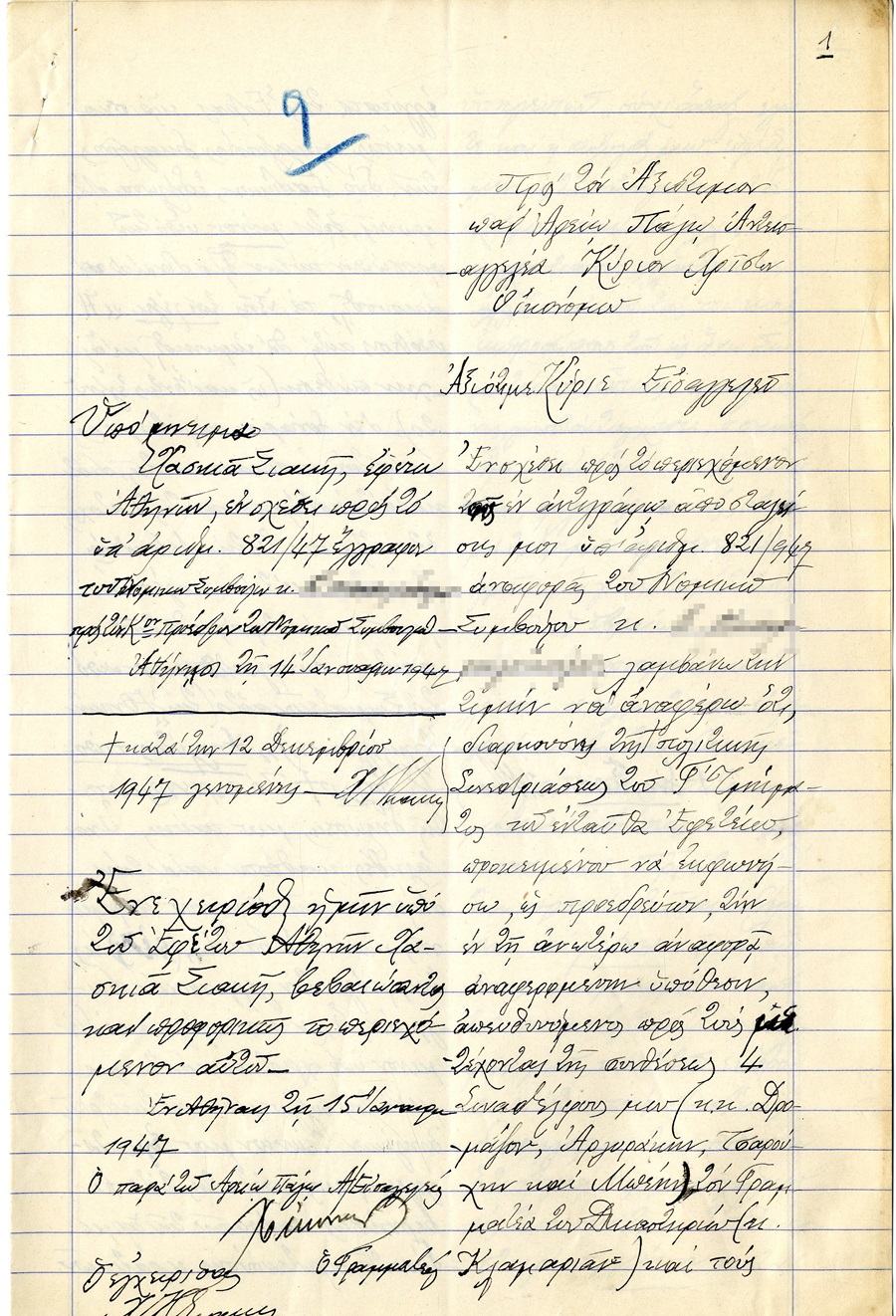
Αναφορά του Εφέτη Χασκιά Σιακκή, 1947. ΓΑΚ – Κεντρική Υπηρεσία, Αρχείο Υπουργείου Δικαιοσύνης. / Report of Appellant Haskia Siacki, 1947.
GAS – Central Service, Archive of the Ministry of Justice. .Report of Appellant Haskia Siacki, 1947. GAS – Central Service, Archive of the Ministry of Justice.
President of the court is the higher judge Haskia Siakkis (or Sakkis). When the case is about to be announced according to its order on the roll, Siakkis “in his usual calm voice”, as his fellow-judge in the same trial mentions in his report, “declares an impediment to announce the case and take part in the trial, “because I and my family benefited by the Solidarity, when, being under persecution by the Germans, we were hiding in Levadeia”. The fact makes a painful impression on the plenipotentiary representative of the Legal Council of the State, who lodges a complaint and submits it to the president of the body the next day. The president forwards it to the Public Prosecutor of the Supreme Court “for the necessary action within your mandate”, which practically means the commencement of an administrative enquiry by the Public Prosecution.
Siakkis, in his relevant memorandum (14.01.1948), apart from questions of procedure, touches upon his adventure during the Occupation and the help he received by the National Solidarity.
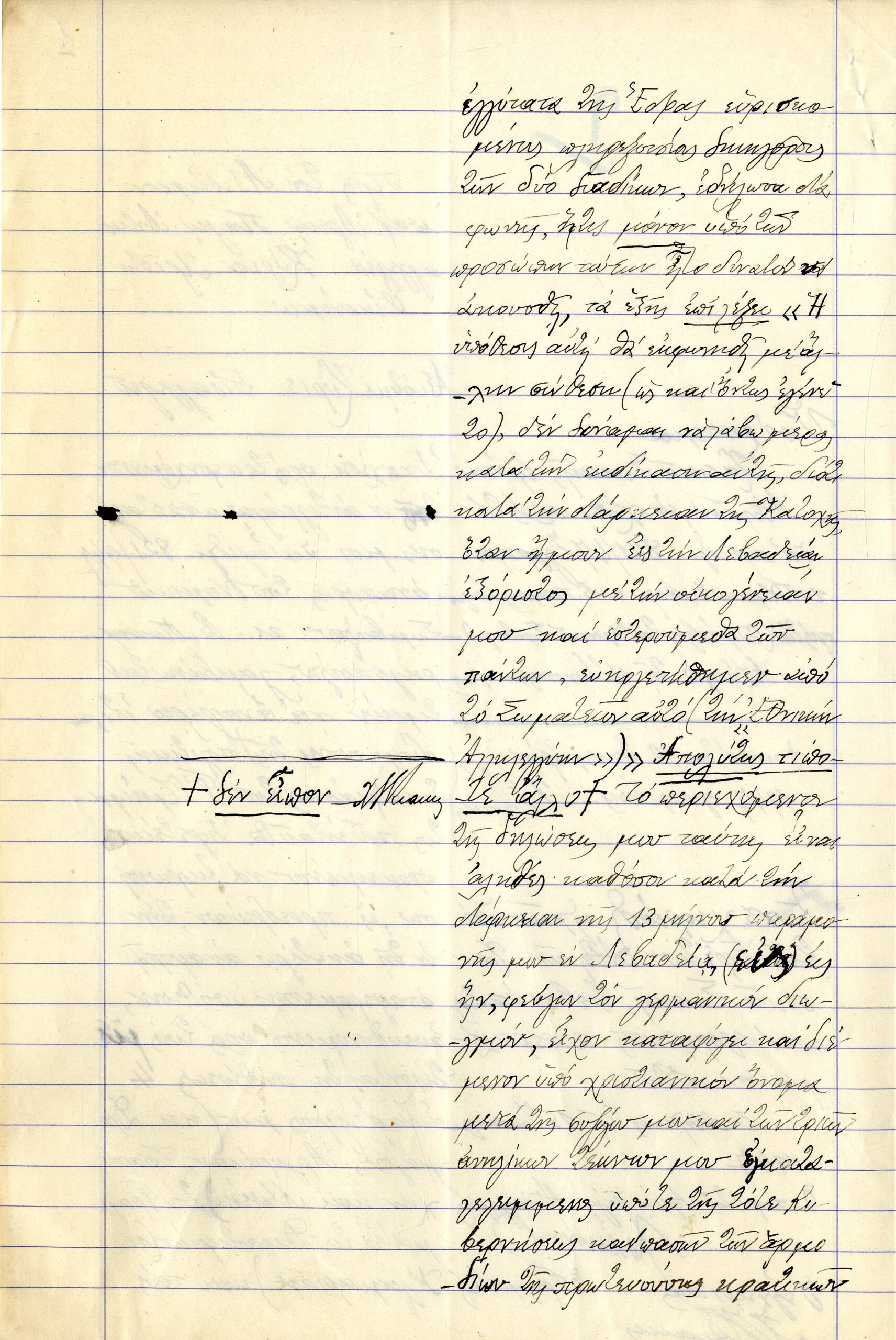
Αναφορά του Εφέτη Χασκιά Σιακκή, 1947. ΓΑΚ – Κεντρική Υπηρεσία, Αρχείο Υπουργείου Δικαιοσύνης. / Report of Appellant Haskia Siacki, 1947.
GAS – Central Service, Archive of the Ministry of Justice. .Report of Appellant Haskia Siacki, 1947. GAS – Central Service, Archive of the Ministry of Justice.
“The content of the present declaration is true, given that during my thirteen-month sojourn in Levadeia, where, trying to escape the German persecution, I had taken refuge and was residing with my wife and my three minor children under a Christian name, having been abandoned by both the Government and all the responsible State Services, my wife and I more than once found ourselves under the necessity of accepting charity, certainly by other Christians as well, but also by the local representatives of the aforementioned Association, whose aim, as happens to be universally known, was at that time philanthropic, various victuals having been brought to us, in knowledge of our capacity as Jews. Such offers constituted a real benefaction for my family, who were deprived of even the most rudimentary means of living.” He says that he proceeded to this declaration because he did not wish his refusal to be interpreted as “the consequence of any different kind of thought (fear etc.), given that “the litigants’ exceptionally keen interest in the outcome of which [trial], as well as the acuteness of the litigation, were manifest’. Concerning the lodging of the complaint he does not hesitate to express his indignation but also “I solemnly beg that the phrase be allowed to me-an emotion of the utmost disgust’.
Nothing incriminating with regard to Siakkis’ political views resulted from the reports and affidavits that constitute the file of case no. ΕΠ 89/20-3-1948 found in the archive of confidential correspondence of the Ministry of Justice; besides, he himself is explicit about it. At any rate his attitude caused a favourable mention by the plenipotentiary advocate of the Association of National Solidarity, as is mentioned in the relevant complaint of the plenipotentiary of the Legal Council of the State in the trial: “So pleased were those well disposed towards the Association by the words of the presiding judge that the Association’s plenipotentiary Mr. Oikonomou told me in the Court’s corridor: “You saw what a conscientious judge Mr. Siakkis is?” only to receive the reply: “Do you say this because he propagandised you?”. The fact became known outside Greece as well. In his report submitted to the Public Prosecutor of the Supreme Court (23/1/1948) the President of the High Court Judges declares: “I rule it out that the judge Mr. H. Siakkis intended to please the communists who are the members of the dissolved Association, but it is certain that his words were exploited by them; this is testified by the telegram (which I submit to you) received from the Federation of the Popular Aid at Avignon, France; they ask me to follow Mr. Siakkis’ gesture, so that the great Greek Solidarity organisation continues its noble effort.” The telegram is preserved in the documents of the case.
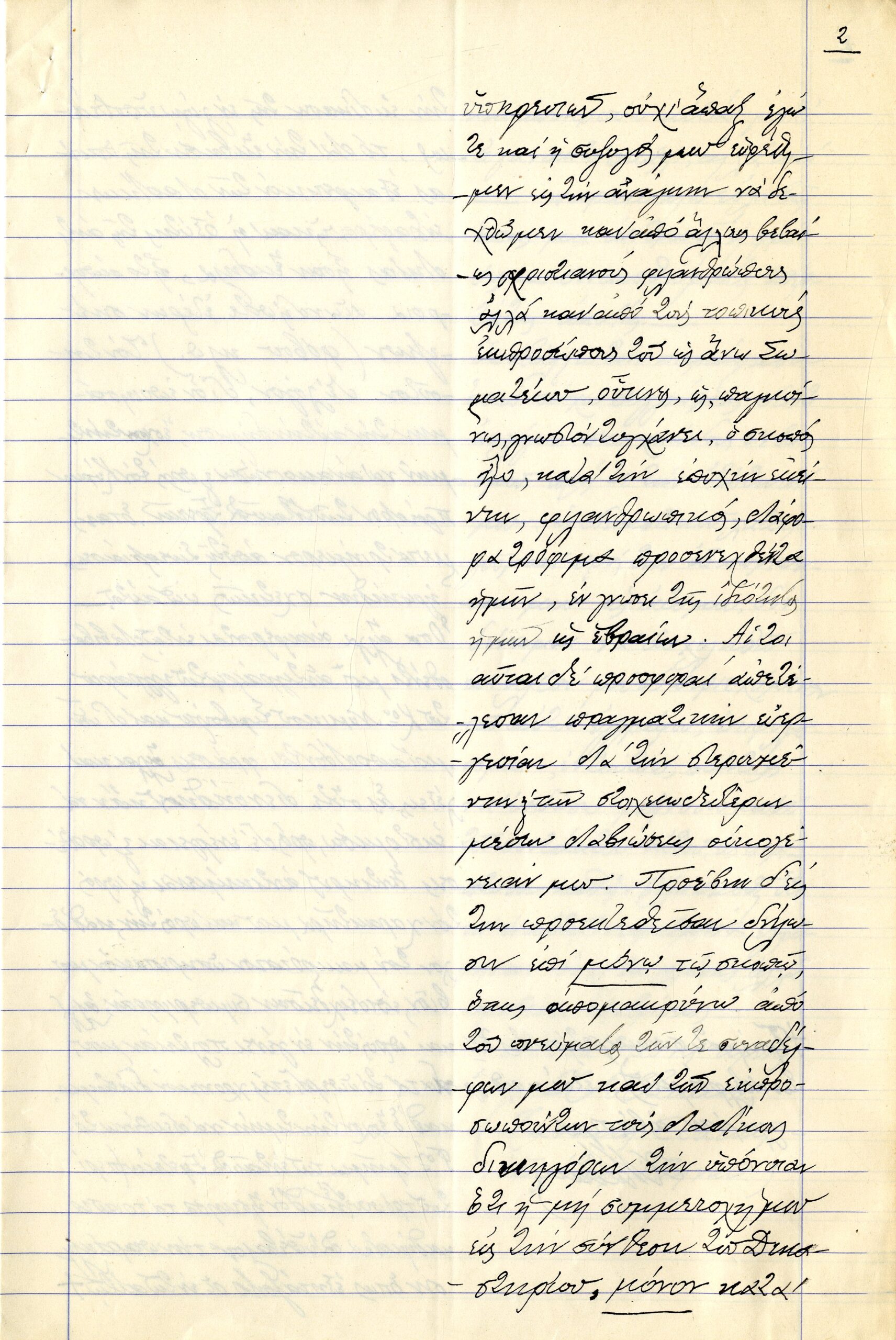
Αναφορά του Εφέτη Χασκιά Σιακκή, 1947. ΓΑΚ – Κεντρική Υπηρεσία, Αρχείο Υπουργείου Δικαιοσύνης. / Report of Appellant Haskia Siacki, 1947.
GAS – Central Service, Archive of the Ministry of Justice. .Report of Appellant Haskia Siacki, 1947. GAS – Central Service, Archive of the Ministry of Justice.
The trial was eventually conducted with a different panel, while Haskia Siakkis was transferred to the Second Political Section and his case was put in the archive. The fact remains that on many occasions Greek Jews were saved thanks to the activity of the Resistance, and apparently they were willing to acknowledge this benefaction at difficult moments, thus risking their career in the public service.

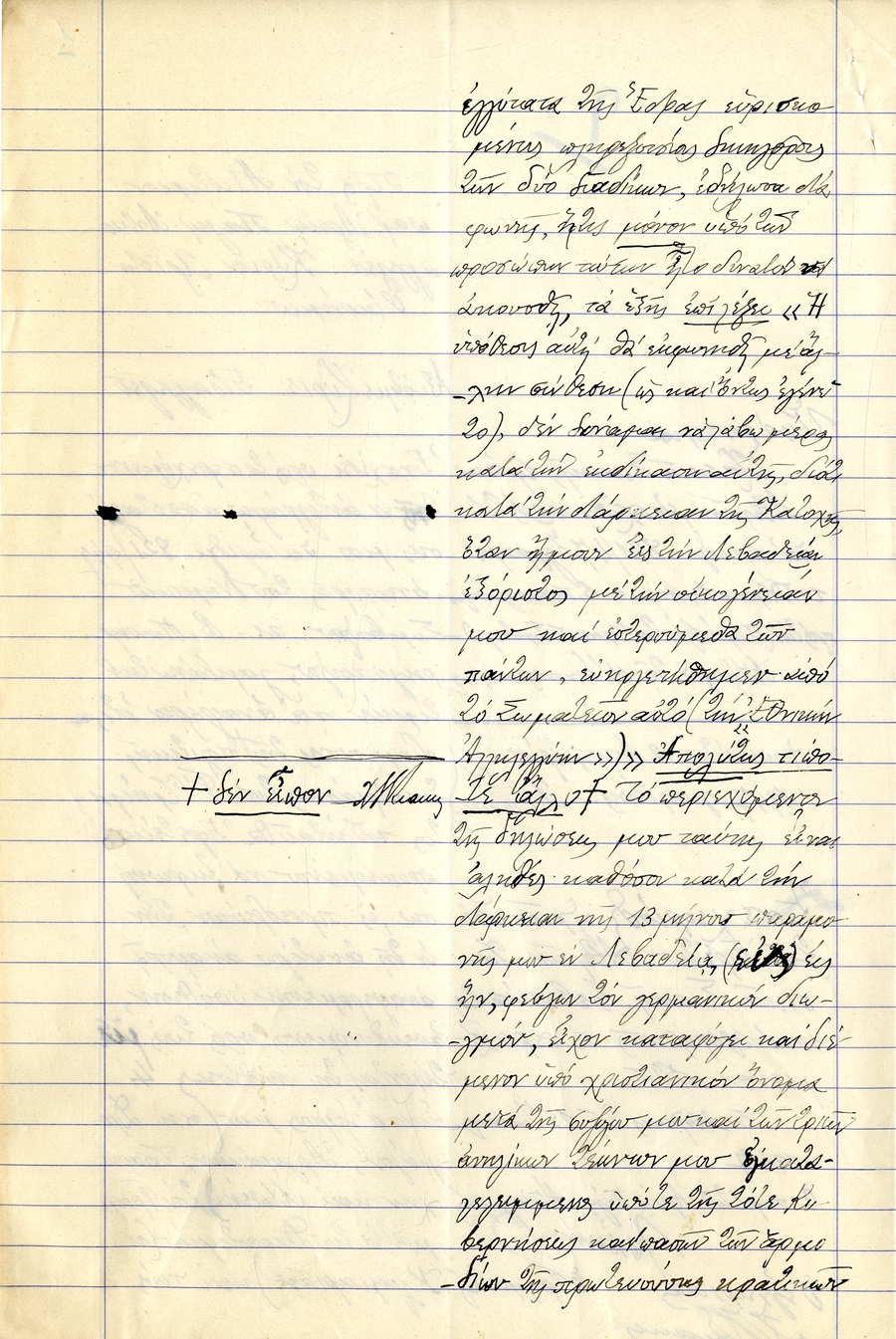
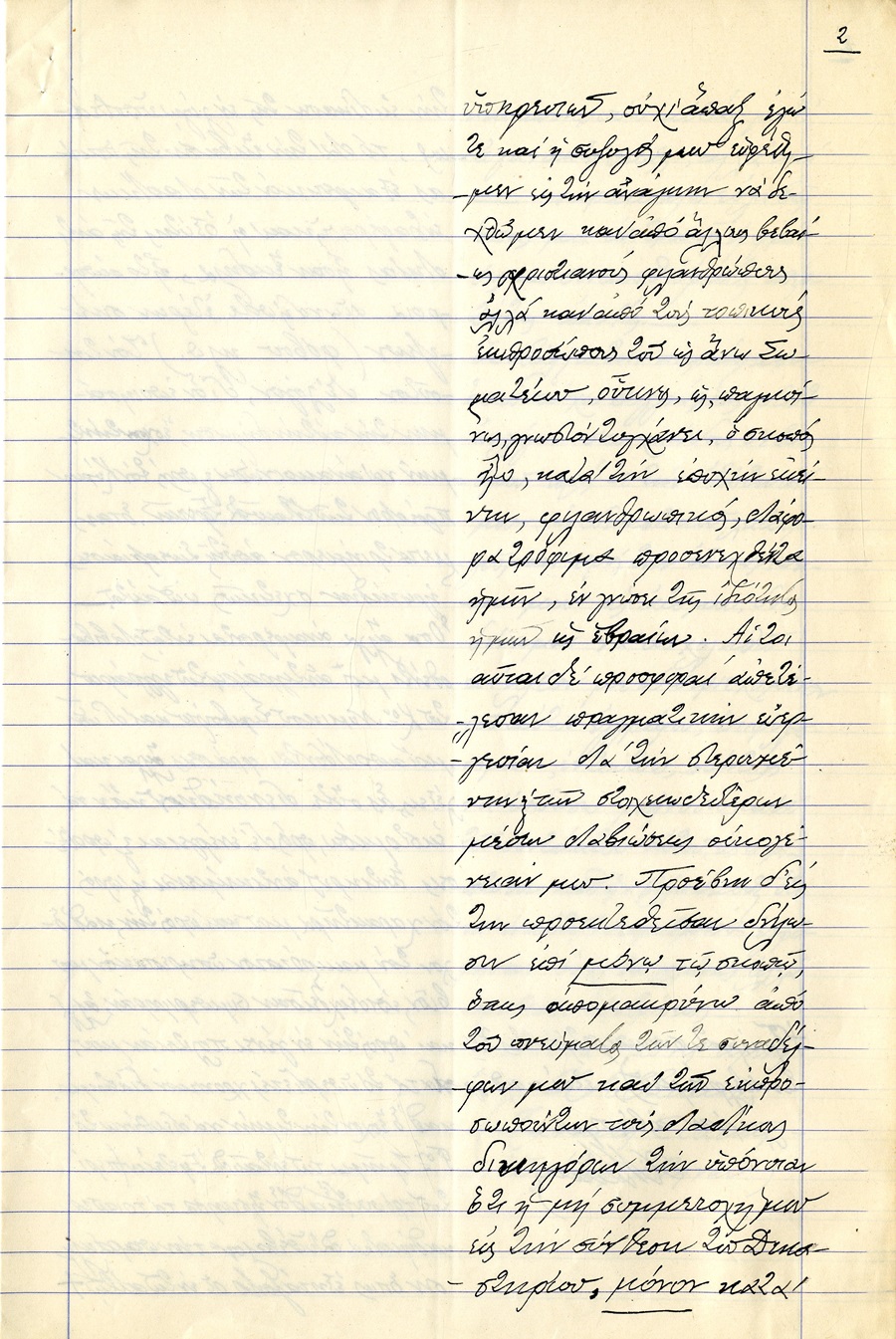
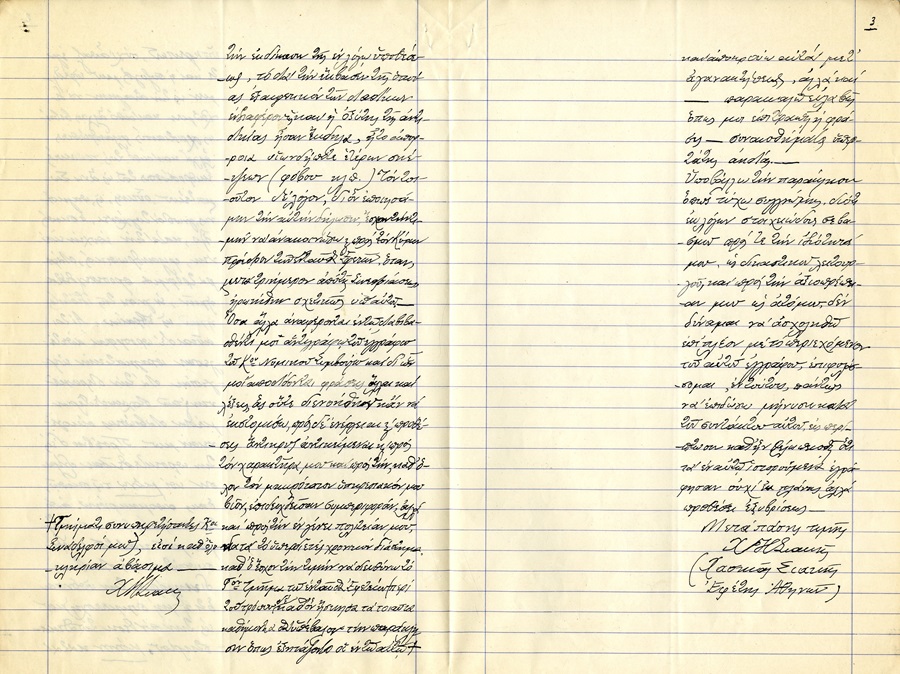


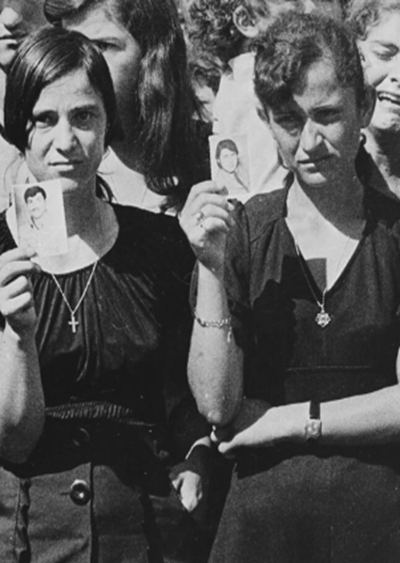
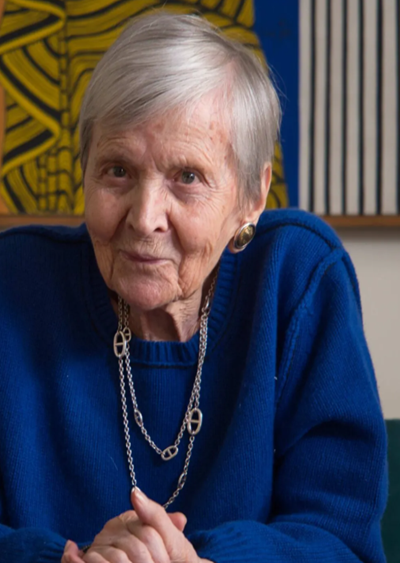
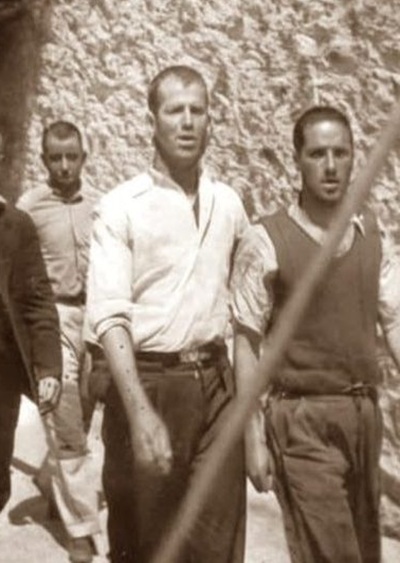


Leave A Comment